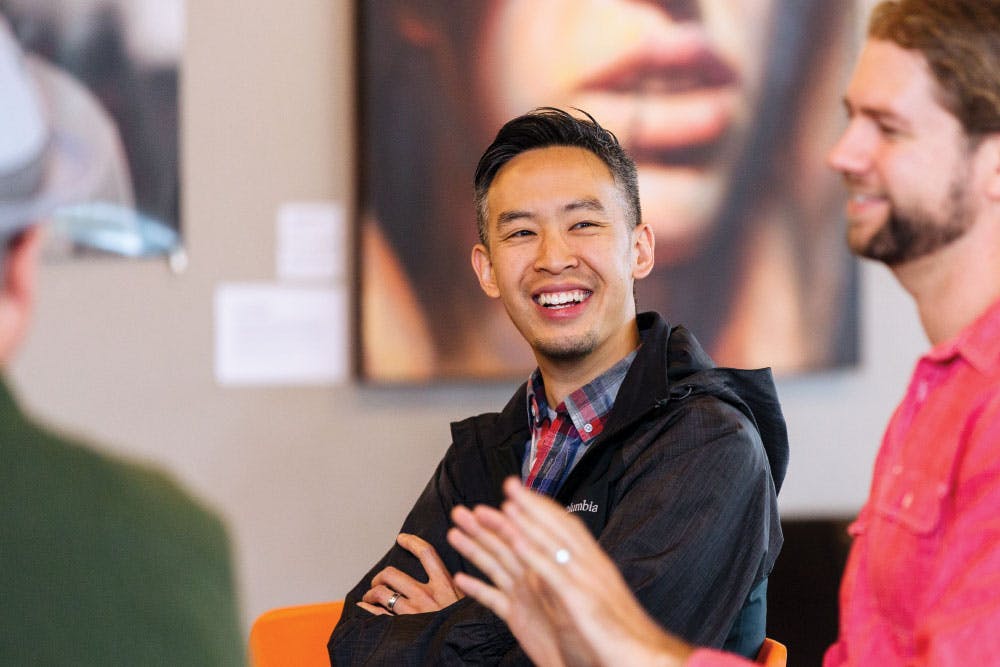David Leong challenges the discussion of race as solely individual, and urges people to engage with historic and geographic policies and structures — such as literal neighborhoods — in his new book, Race and Place: How Urban Geography Shapes the Journey to Reconciliation.
David Leong believes the very incarnation of God in Jesus serves as a profound symbol of God “moving into the neighborhood,” as Eugene Peterson ’54 paraphrases Scripture in The Message.
“The doctrine of the incarnation, this bedrock of orthodox historic Christianity, is to me, one of the simplest but most profound symbols of God taking on humanity, getting up close and personal with us, choosing to inhabit our physical lives in order to connect with humanity, in order to experience and suffer with us,” Leong says. “I can’t think of a more foundational doctrine than the incarnation that signals to us place matters, our human bodies matter, and the physicality and fleshly reality of incarnation is that God’s location matters.”
An associate professor of missiology at Seattle Pacific University, Leong challenges the discussion of race as solely individual, and urges people to engage with historic and geographic policies and structures — such as literal neighborhoods — in his new book, Race and Place: How Urban Geography Shapes the Journey to Reconciliation.
“Broadly, I’m trying to get Christians to think about race geographically — and therefore structurally or systemically,” Leong says of his work both in and out of the classroom.
Leong intends to uniquely inspire a new framework for his primary audience, which is broadly Christian, particularly evangelical. He writes for church leaders, students, those in urban ministry or nonprofits, and any Christian who wants to live more intentionally in cities.
Leong recognizes that the intersection of race and structural issues — such as urban planning and policy — is a premise of much social science. But he sees these fields and ways of framing as “painfully absent” from evangelical circles.
“In some sense, I feel like I’m doing some translation and bringing different types of people together for a conversation that isn’t entirely unique but that is necessary for a certain subset of Christian ideas,” Leong says. “The book is trying to say, ‘Hey evangelical Christians, when we think about race, it’s really about much more than personal morality and personal conscience.’”

Leong says his book aims to get readers to pay closer attention to place and to consider how they have located their lives residentially, socially, and vocationally.
“Walls, fences, borders, and boundaries are all around us, and they generally serve a common set of purposes: to divide, define, and demarcate,” he writes.
Leong aims to get churches to think about the physical address of their location and by extension, how their social networks are shaped by that geographic reality.
“When we think about these very basic tenets of Christian discipleship like love of God and neighbor, place is the context where love of neighbor gets worked out,” he says. Leong believes an understanding of place is necessary for people to connect their passions with meaningful change and discipleship.
Leong sees many places where division or exclusion have become endemic in both our intellectual and social lives. “More and more,” he says, “I’m trying to get people to reimagine, to think creatively about how can we cultivate places, how can we build bridges across these boundaries and divides so that we can begin to see what I call communities of belonging.”




